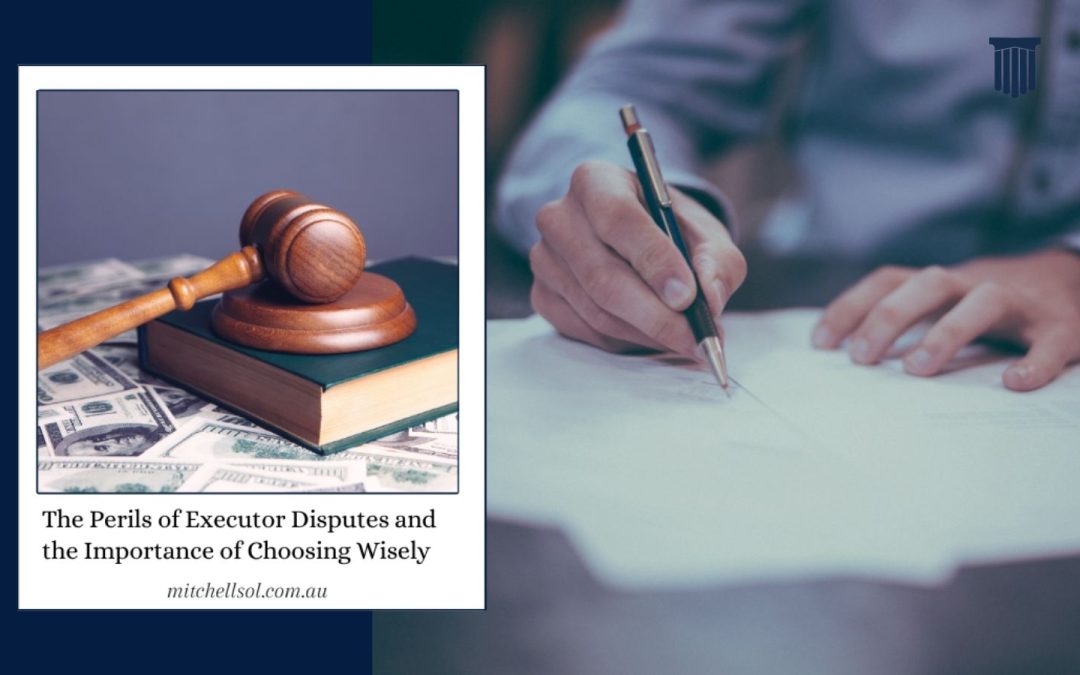Estate administration can be an intricate and emotionally charged process, which is only exacerbated when disputes occur among executors. The recent Queensland case of Re Franks [2021] QSC 134 is a real-life example highlighting the challenges of estate administration and how the process can be disrupted when executors don’t agree.
William, a testator, passed away in July 2020, leaving behind a will dated January 2018. The will designated Jennifer and Peter as executors, with Patricia initially being the third executor before she renounced her role. There were 31 beneficiaries named in the will, including a sister, five adult children, and multiple grandchildren.
The main issue in this case was the profound disagreement and conflict between the two remaining executors, Jennifer and Peter. These disputes revolved around crucial aspects of estate administration, from the sale of assets to the payment of insurance premiums and the handling of unpaid rates and liabilities, and even the need to open an estate bank account.
The estate’s complexity made matters even more difficult. It included real estate properties, a boat, shares, farming equipment, vehicles, and a commercial fishing license. Legal disputes arose within the family, with David, a beneficiary, filing an application for further provision from the estate, further delaying the administration process. Ultimately, they had been unable to reach a consensus on how to administer the estate.
As a result, Jennifer initiated legal proceedings to remove both herself and Peter as executors of the will. She believed that their inability to cooperate effectively and efficiently in managing the estate necessitated their replacement.
One critical concern for the court was the potential conflict of interest between Peter, acting as an executor, and his personal interests in relation to potential liabilities to the estate. This raised questions about the impartiality of his estate management. Furthermore, the court was concerned that Peter had initiated actions without consulting Jennifer, and in certain instances, proceeded with his own proposals even in the absence of consensus with Jennifer.
In light of the ongoing conflicts, lack of cooperation, and the inability to reach a consensus on vital estate administration matters, the court decided to appoint an independent administrator. This decision was guided by the best interests of the estate and its beneficiaries, despite the testator’s initial choice of executors. The potential cost of an independent administrator was deemed necessary to address the administration challenges effectively.
This case illustrates just how significant the repercussions of choosing the wrong executors can be. It can lead to arguments, legal battles, and delays in asset distribution, which can ultimately strain family relationships and increase the financial burden on the estate.
Selecting the right individuals as your executors is not a decision to be taken lightly. It requires careful consideration of their qualities, capabilities, and their ability to work harmoniously. By choosing wisely, you can safeguard the efficient and accurate execution of your final wishes, minimise potential conflicts, and provide your loved ones with peace of mind during an emotionally challenging time.

When planning your estate, consult with an experienced solicitor who specialises in wills and estates, who can guide you in making the right executor choices and ensure that your assets are managed and distributed as you intend. Your choice of executors can leave a lasting legacy of ease or difficulty for your loved ones, making it a decision that deserves thoughtful attention.
Written by Sally Scott

